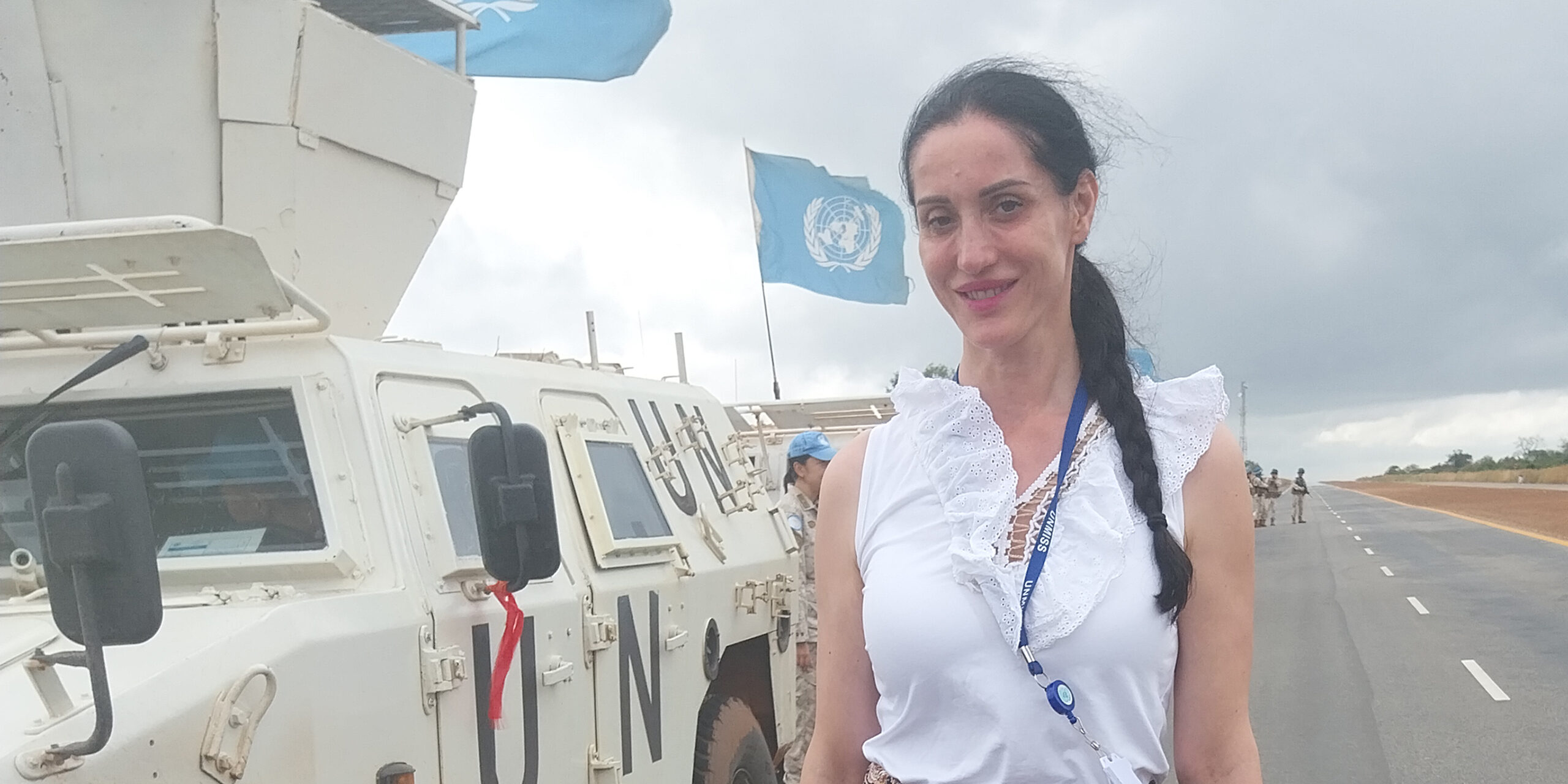For Admirela A. Balic (’96), a life of accomplishment means deploying knowledge and commitment to serve humanity’s highest values. As the new senior rule of law advisor for the United Nations Mission in South Sudan (UNMISS), she lives out that belief daily.
“Having originally come from Mostar, Bosnia and Herzegovina, a country that experienced genocide and a three-year-long brutal war, I learned to empathize with people who are facing conflict at no fault of their own—innocent civilians, women, and children, cruelly swept up as a strategy of war,” Admirela shares. Witnessing her own home in flames and family members in a concentration camp fueled her determination to acquire skills to “alleviate some of the sufferings around the world.”
That empathy and drive took her from the UN peacekeeping mission in post-war Kosovo to coordinating humanitarian relief for Rwandan genocide refugees in Tanzania. From Vienna, she worked across forty countries combating transnational organized crime and terrorism before supporting anti-corruption and anti-piracy efforts in Kenya and Somalia.
Now in South Sudan, over a decade after independence but still plagued by fragility and community violence, Admirela advises an international team promoting dialogues between communities to support reconciliation and prevent violent clashes. Abductions of women and children, cattle raiding, and killings are some of the most concerning crimes affecting these communities. The establishment of Traditional Leaders Courts as an inter-communal dispute resolution and justice mechanism was requested by a regional peace agreement to help ease grievances and promote lasting peace by ensuring that there is accountability for such serious crimes.
“Accountability for these crimes needs to be ensured, not only to prevent them in the future but also to ensure there is no impunity,” Admirela states. Her role delivers on UNMISS’s mandate from the UN Security Council to build durable peace, strengthen the rule of law and governance, and protect civilians from violence.
Looking back, Admirela expresses gratitude for life’s trials: “Bad experiences teach us humility. They make us more human and vulnerable, therefore more amenable to empathizing with others.” That hard-earned empathy, combined with formidable experience, fuels Admirela ‘s vital work for justice and human dignity worldwide.




